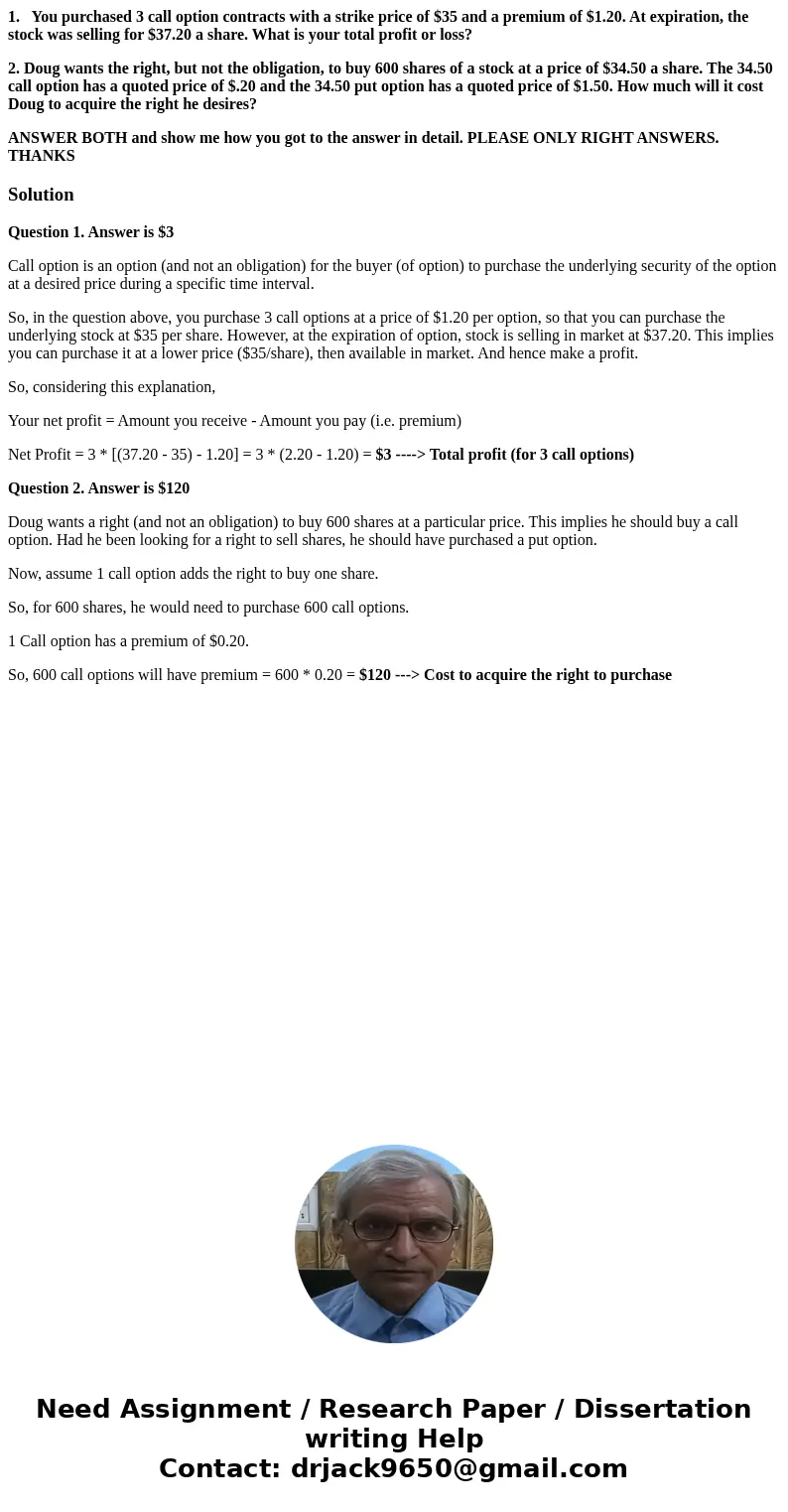1 You purchased 3 call option contracts with a strike price
1. You purchased 3 call option contracts with a strike price of $35 and a premium of $1.20. At expiration, the stock was selling for $37.20 a share. What is your total profit or loss?
2. Doug wants the right, but not the obligation, to buy 600 shares of a stock at a price of $34.50 a share. The 34.50 call option has a quoted price of $.20 and the 34.50 put option has a quoted price of $1.50. How much will it cost Doug to acquire the right he desires?
ANSWER BOTH and show me how you got to the answer in detail. PLEASE ONLY RIGHT ANSWERS. THANKS
Solution
Question 1. Answer is $3
Call option is an option (and not an obligation) for the buyer (of option) to purchase the underlying security of the option at a desired price during a specific time interval.
So, in the question above, you purchase 3 call options at a price of $1.20 per option, so that you can purchase the underlying stock at $35 per share. However, at the expiration of option, stock is selling in market at $37.20. This implies you can purchase it at a lower price ($35/share), then available in market. And hence make a profit.
So, considering this explanation,
Your net profit = Amount you receive - Amount you pay (i.e. premium)
Net Profit = 3 * [(37.20 - 35) - 1.20] = 3 * (2.20 - 1.20) = $3 ----> Total profit (for 3 call options)
Question 2. Answer is $120
Doug wants a right (and not an obligation) to buy 600 shares at a particular price. This implies he should buy a call option. Had he been looking for a right to sell shares, he should have purchased a put option.
Now, assume 1 call option adds the right to buy one share.
So, for 600 shares, he would need to purchase 600 call options.
1 Call option has a premium of $0.20.
So, 600 call options will have premium = 600 * 0.20 = $120 ---> Cost to acquire the right to purchase

 Homework Sourse
Homework Sourse